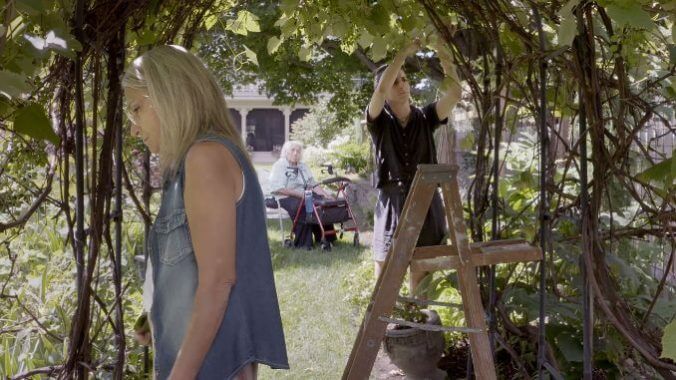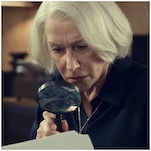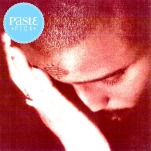Family Friction Charms in Joonam‘s Meandering Multi-Generation Quest for Iranian Identity

Last year, I read an interview with a French filmmaker who started something called the Grandmas Project. The idea was that, to preserve our different cultural heritages and record the myriad lived experiences of our elders, people all over the world should shoot short films about their grandmothers. Think less masterful versions of Martin Scorsese’s Italianamerican, where charming domesticity runs headlong into the hardships of previous generations. Filmmaker Sierra Urich isn’t specifically contributing to this Project with her debut, Joonam, but the documentary similarly captures the matrilineal relationships between her, her mom Mitra, and her grandmother Behjat with the poignant friction of a familial cultural clash.
The shadow of Urich’s uncertain Persian-American identity gives the doc its depth, as she seeks to learn enough Farsi to effectively communicate with her grandmother, while simultaneously being pushed back by the older generations who experienced the repression of Iran firsthand. At its best, it captures a complex blend of wistfulness and pride that will resonate with many immigrant families while striking a specific tone of playful prickliness all its own. But these moments aren’t as common as its overfamiliar connective tissue, nor as central as the film’s yearning attempts to give the three women their due.
Urich’s techniques to that end are a grab bag. There’s the cute archival home video shot by Mitra, for her family back in Iran, when Urich was a baby. There’s Behjat’s reminiscing, mostly in Farsi with subtitles, which sometimes cut to darkness and allow her words to burn into the screen. There’s the scattered multimedia, which is almost all annoying—like a thirdhand FaceTime tour of Tehran, pixelated and constantly cutting back to the filmmaker’s face, or a series of TikToks the filmmaker is watching while killing time at her parents’ house. These ironic digital signifiers of closeness and separation feel flat and overly self-conscious, especially when compared to the vitality when Mitra or Behjat are on screen.
When the women are all together and Urich’s camera is rolling, you get delightful and familiar candid conversations, sometimes around the logistics of shooting the documentary itself and sometimes just singing in the car…either of which can quickly turn into an argument. And isn’t that always the way it goes when visiting family? Reuniting and falling back into the same old patterns? You start bickering like you’d just left off the day before, even if it’s been months. When I see my parents, my drawl starts slurring again like I’d never left the south. When Urich reunites with her beloved Behjat, she sequesters herself in a side room as her grandmother rants on the telephone while watching a soap opera.
-

-

-

-

-

-

-

-

-

-

-

-

-

-

-

-

-

-

-

-

-

-

-

-

-

-

-

-

-

-

-

-

-

-

-

-

-

-

-

-








































